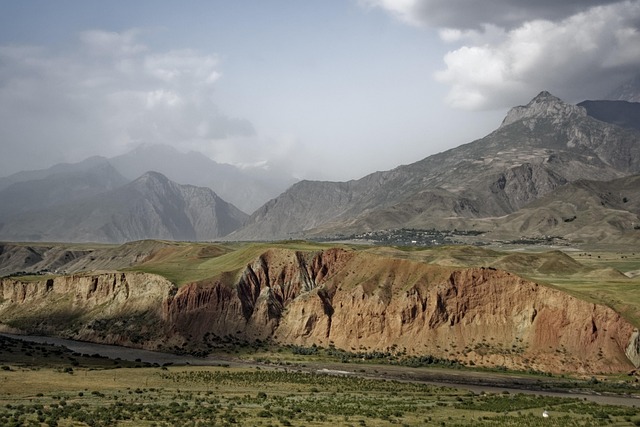The W. E. Sears lawsuit against Valley Springs Youth Ranch (VSYR) exposes potential financial mismanagement and abuse within at-risk youth organizations. This class-action litigation highlights systemic emotional abuse, neglect, and breach of trust at VSYR, impacting mental health of victims. The outcome could affect similar non-profits, prompting reevaluation of liability, transparency, and ethical practices in youth care facilities to prevent future legal challenges.
Discover the complex web surrounding the Valley Springs Youth Ranch, a topic that has sparked widespread interest. This article delves into the W E Sears Lawsuit, exploring its intricacies and implications for similar organizations. We unravel the controversy that has put this ranch in the spotlight, examining its effects on youth programs nationwide. By understanding the Valley Springs Youth Ranch case and its associated W E Sears Lawsuit, readers gain valuable insights into potential legal ramifications and best practices for future operations.
- Understanding the Valley Springs Youth Ranch Controversy
- The W E Sears Lawsuit: A Comprehensive Overview
- Implications and Impact on Similar Organizations
Understanding the Valley Springs Youth Ranch Controversy

The Valley Springs Youth Ranch, a non-profit organization dedicated to at-risk youth, has been at the center of a contentious legal battle involving W. E. Sears, a former volunteer. The controversy emerged when Sears alleged misconduct and unethical practices within the ranch’s operations, leading to a class-action lawsuit against the establishment. This legal dispute shines a light on the complex dynamics between non-profit entities and their volunteers, particularly when allegations of financial mismanagement and potential abuse of power surface.
The W. E. Sears lawsuit has sparked widespread interest due to its implications for transparency and accountability in the non-profit sector. It raises questions about the responsibilities of organizations towards their volunteers and the measures needed to protect them from potential harm. As the case unfolds, it promises to shape future practices and policies, ensuring that such controversies are addressed proactively to maintain the integrity of youth development programs across the nation.
The W E Sears Lawsuit: A Comprehensive Overview

The W E Sears lawsuit is a significant legal case that sheds light on the potential misconduct at Valley Springs Youth Ranch (VSYR). This class-action litigation, filed against VSYR and its associated entities, aims to bring justice for individuals who were allegedly subjected to abusive practices during their time at the ranch. The suit, led by W E Sears, a former resident, alleges systemic issues within the organization, including emotional abuse, neglect, and breach of trust.
The lawsuit delves into various allegations, such as excessive punishment, isolation, and inadequate supervision, which have profound impacts on the mental health and overall well-being of the affected individuals. By gathering testimonies from numerous plaintiffs, the case provides a comprehensive overview of the challenges faced by youth at VSYR. This legal action not only seeks compensation for victims but also aims to hold the ranch accountable for its actions, potentially setting a precedent for preventing similar instances of abuse in future youth care facilities.
Implications and Impact on Similar Organizations

The outcome of class-action lawsuits involving Valley Springs Youth Ranch could have significant implications for similar organizations, including non-profit entities like W E Sears. The W E Sears lawsuit has brought to light important considerations regarding liability, transparency, and ethical practices in youth care facilities. If found liable, such organizations may face substantial financial burdens, potentially forcing them to reassess their operations and policies.
This legal scrutiny highlights the need for heightened due diligence in record-keeping, staff training, and oversight mechanisms. By learning from cases like this, other youth ranches can strengthen their internal controls, foster a culture of accountability, and protect themselves from similar legal challenges in the future. It underscores the importance of proactive measures to ensure the safety, well-being, and rights of the vulnerable populations they serve.
The ongoing class-action lawsuit against Valley Springs Youth Ranch, as detailed in the W E Sears case, underscores the critical importance of transparency and accountability in youth ranching operations. This legal battle has far-reaching implications for similar organizations, prompting a reevaluation of policies and practices to ensure compliance with legal standards and the protection of young participants’ rights. By understanding the intricacies of the W E Sears Lawsuit, stakeholders can navigate the complex landscape of class-action litigation and foster more ethical and safe environments for at-risk youth.
